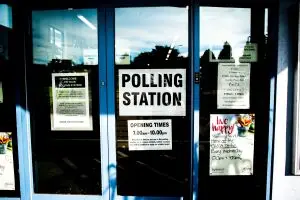Yesterday, the final Police and Crime Commissioner ballot results from the 6 May 2021 elections were announced. This brought to a conclusion the process started last week to elect 145 English local councils, 13 English mayors and 39 police and crime commissioners in England and Wales. As well as the Welsh Parliament (60 seats), London Assembly (25 seats) and, crucially, the Scottish Parliament (129 seats) and the Hartlepool Westminster by-election. These results will have significant implications for all the major political parties in the UK. This will undoubtedly impact the lobbying strategies of companies seeking to influence the direction of policy in our country.
Boris Johnson has emerged from the elections with his leadership of his party and country reinforced. The Conservatives won the Hartlepool by-election, with Jill Mortimer winning 51 per cent of the votes and a majority of 6,940.[1] This makes her the first Conservative MP for the seat since its modern iteration was established in 1970. The Conservatives gained 13 councils and 235 councillors in the English local elections. They also won 34 of the 39 police crime commissioners, capturing Cheshire, Cleveland, Derbyshire, Durham, Humberside, Lancashire, Leicestershire, and Nottinghamshire from Labour. [2]This, coupled with strong results in the mayoral contests in places like Tees Valley where Ben Houchen increased his share of the vote from 51 per cent to 72.8 per cent, has created a strong narrative about the Conservatives re-orienting towards the midlands and north of England. The Prime Minister recognised this in comments made during the Queen’s Speech debate, where he said he wanted to: ‘thank everyone who has placed their trust in this Government, many thousands of them for the first time in their and their family’s history. Across this country, Conservative councillors were elected in areas that my party has seldom had the honour of representing.’[3] Businesses can expect the Prime Minister to make a strong effort to realise the promise of ‘levelling up,’ and should make evidence of how they can support this agenda a key plank of their influencing strategies.
By contrast, Keir Starmer’s leadership of Labour has taken its first significant blow. The loss of the Hartlepool constituency is being used by his opponents to claim he is taking the Labour party in the wrong direction. Khalid Mahmood quit Labour’s frontbench in the immediate aftermath of the result, claiming that Labour had been taken over by a ‘London-based bourgeoisie’ and ‘brigades of woke social media warriors.’[4] While Corbynite former Shadow Chancellor, John McDonnell, has stated that ‘Keir Starmer’s Labour stands for nothing, so how can we convince people to vote for us?’[5] The inquest in Labour’s results overshadowed gains for Labour in certain parts of the country, for example, Labour’s Nik Johnson and Dan Norris winning the Cambridgeshire & Peterborough and West of England mayoral contests from the Conservatives. However, some argued these were offset by the Greens gaining 88 councillors: a sign that the left-wing coalition assembled by Jeremy Corbyn is fracturing. Keir Starmer seemed poised to try and reassert his authority over Labour with a Shadow Cabinet reshuffle last weekend. However, negative reaction to rumours that he was going to demote Angela Rayner,[6] seen by many as the leading representative of the party’s left in the Shadow Cabinet, led first to delay and then a significant expansion of the Shadow Cabinet. This has been taken as a sign that Starmer is unable to fully control the factions within his party and, with Batley and Spen MP, Tracey Brabin, winning the West Yorkshire mayoralty, Starmer may face another challenge to his authority with a by-election for her seat now required. Another by-election loss will likely hear the voices urging a change in direction only get louder. At present however there seems little sign that Labour is seeking to learn from its performance in Wales. At last week’s elections Welsh Labour matched its best ever performance to win half of the 60 Senedd seats.[7] For businesses with plans for Wales they should plan for the future with the expectation that they will be working with a Labour government for the next five years.
The failure of the SNP to win a Holyrood majority has apparently reinforced Westminster’s determination to resist Scottish independence. Nicola Sturgeon saw her party’s number of seats at Holyrood rise by one to 64.[8] However, it was not enough to win the kind of majority that saw Alex Salmond press David Cameron into granting the 2014 Scottish Independence referendum. Sturgeon has threatened to pass a referendum Bill at Holyrood and challenge the British government to oppose it in court. However, it seems in event of that happening Scottish unionists would launch legal action rather than the British government. This seems likely, in the immediate future, to allow the British government to continue resisting calls for another independence referendum. However, the SNPs dominance of Scottish politics will continue. In all areas of devolved policies businesses with interests in Scotland should ensure they have influence with the key party figures.
BREVIA CONSULTING PROVIDES STRAIGHTFORWARD POLITICAL AND COMMUNICATIONS SUPPORT TO BUSINESSES AND ORGANISATIONS
Discover how Brevia can help you and your organisation by contacting the Brevia Energy Team on 020 7091 1650 or emailing us at: contact@brevia.co.uk
[1] Sky News, 7 May 2021, link
[2] BBC News, England local elections 2021, link
[3] The Prime Minister, House of Commons Hansard, Col. 20, 11 May 2021, link
[4] Guardian, 8 May 2021, link
[6] New Statesman, 8 May 2021, link




